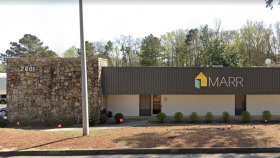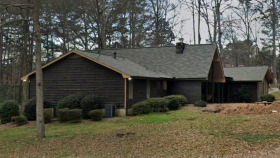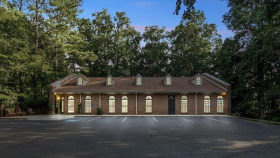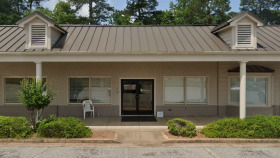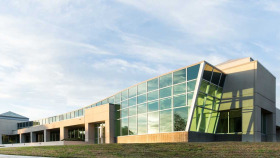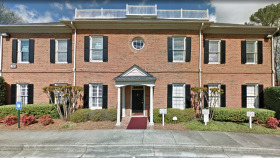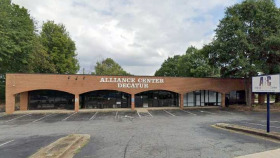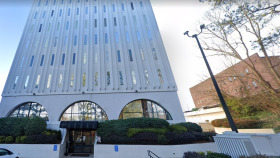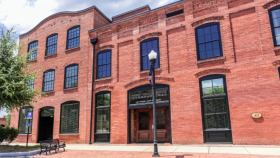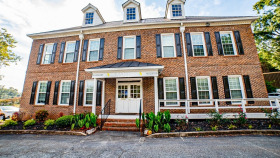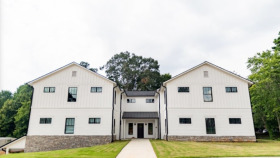Expert Insights
I have firsthand seen the pain and frustration that a co-occurring disorder causes a close family member. Substance use usually covers up the mental health issues that an individual is experiencing.
Anxiety and depression can lead to the use of substances and at times cause a drug induced psychosis. It’s even harder when your loved one is in psychosis and runs into legal trouble.
Co-occurring mental health and substance use disorders affect many in Georgia. Hand in Hand Recovery reports that nearly 50% of those with mental health issues also battle substance abuse. Common disorders include depression, anxiety, and bipolar disorder, which are often worsened by self medication.
A court can order an individual for evaluation based on a two party affidavit under Georgia law. A court may mandate inpatient or outpatient treatment if the individual meets the criteria.
Emergency holds typically last up to 48 hours for initial evaluation, with extensions up to five days if inpatient treatment is deemed necessary.
~ Jenise Alvarez
How Much Does Drug Rehab Cost in Georgia?
Georgia is ranked 8th nationwide in terms of addiction treatment affordability, with an average cost of drug and alcohol rehab of $55,475 (without insurance).
- Medical detox is the most expensive, with an average cost of $136,766
- Long-term inpatient drug rehab in Georgia costs an average of $48,953
- Outpatient addiction treatment in Georgia costs an average of $8,134
- Outpatient methadone treatment is the most affordable, with an average cost of $7,227
Keep in mind these costs are averages for all types of addiction treatment, including medically supervised detox and residential inpatient rehab, both of which drive up the average. These numbers also reflect the full cost of drug rehab without any insurance coverage. Most individuals can expect to pay far less than these prices for more typical outpatient drug treatment, MAT, and addiction therapy.
Cost of Drug Rehab in Georgia Compared to Nearby States
Here is how much addiction treatment costs in Georgia vs nearby states like Florida, Alabama, and North Carolina.
How to Pay for Drug Rehab in Georgia
As of 2024, there were over 390 drug rehab facilities across the state of Georgia. These facilities accept several payment methods. Of those treatment facilities, the following numbers reflect how many accept their respective payment methods:
Several options are available to help pay for drug and alcohol rehab centers. These include state and government funded coverage, private insurance, and several non-insurance options that help cover the cost of treatment.
Private Insurance in Georgia
Many treatment facilities will take private pay clients and those with commercial health insurance coverage. Some people with insurance coverage choose self pay so their insurance provider, and potentially their employer, is unaware they require care.
Most commercial health insurance providers include coverage for drug and alcohol addiction and mental health treatment. The benefits and coverage levels vary among providers and health insurance plans. Addiction treatment centers typically verify your insurance coverage and help estimate your out of pocket costs. These are some of the major health insurance providers that offer coverage in Georgia.
- Aetna
- Alliant Health Plans
- Ambetter
- Anthem Blue Cross and Blue Shield
- Blue Cross Blue Shield Healthcare Plan of Georgia, Inc
- CareSource
- Cigna
- Humana
- Kaiser Permanente
- Oscar Health Plan of Georgia
- UnitedHealthcare
Medicaid
Medicaid is a collaboratively funded program between the state and federal governments. You must meet basic eligibility requirements to receive benefits. These include low income, age, legal blindness, disability, or nursing home care. Medicaid covers alcohol and drug rehab treatment in facilities that accept Medicaid.
Georgia also has a Georgia Pathways to Coverage program for people who do not meet the eligibility requirements for traditional Medicaid. Eligibility includes low income of up to 100% of the federal poverty level, residency, and citizenship requirements, not qualifying for traditional Medicaid, and completing at least 80 hours of qualifying activity.
Medicare
Medicare is a government funded program for people over 65 years or individuals with certain disabilities or health conditions. Two parts of Medicare help pay for drug rehab and addiction treatment centers. These are Medicare Part A, which covers inpatient care, skilled nursing, and home health care, and Medicare Part B, which covers healthcare providers, outpatient care, and durable medical equipment.
Medicare offers coverage for inpatient and outpatient drug and alcohol addiction treatment. Most rehab centers will verify your coverage, which can vary depending on Medicare Supplement and Medicare Advantage plans. These premium-based, managed care plans provided by private companies may include more addiction treatment coverage.
Military Insurance
There are several types of military insurance in Georgia, including TRICARE, VA health care, and Armed Forces Insurance. These are government sponsored plans that are available to military personnel, veterans, retirees, and their families throughout the U.S.
The Atlanta VA Healthcare System has addiction treatment services, including 24-hour residential care and outpatient programs. The Georgia VA Medical Centers have two centers, one in Dublin and one in Augusta, that offer the same services. The Georgia Department of Veterans Service includes education, training, benefits assistance, and other healthcare resources.
Tribal Funding
Alcoholism is a problem in many Native American communities. There are several options that may offer funding sources for treatment. The Substance Use Prevention, Treatment, and Recovery Services Block Grant is distributed to states, territories, and jurisdictions which gives them the flexibility to produce programs related to the local needs. “States” also includes the Red Lake Band of Chippewa Indians.
The Georgia grant portal lists one grant to tribal communities to support behavioral health. IHS-Tribal-Urban funds provide funding help to healthcare agencies that offer alcohol and substance abuse treatment. Many individuals do not have access to care because of financial challenges. These funds may help people receive the help they need when they need it. Tribal members can also apply to their tribal association for funding help.
Other Low Cost Options
Even with health insurance, you still face out of pocket costs that can be overwhelming. Many treatment centers offer other financial adjustments that help reduce this challenge so treatment can become a reality.
- Private loan: A personal or private loan offers you the most immediate financial assistance. You can negotiate the repayment terms and the interest rate when the loan originates from a friend or relative.
- Sliding scale fees: Many programs offer sliding scale fees to reduce financial overhead. You must provide documentation of your low income and financial need.
- Employee assistance programs: EAPs may offer free or low-cost addiction treatment at drug rehabs where they have an agreement with the facility. Some EAPs also offer financial assistance to cover out of pocket expenses.
- Faith-based programs: The foundation of faith-based treatment programs is typically religious beliefs. The religious community that offers the program may provide free or low-cost care for participants.
- Grants and scholarships: Many local businesses, state and government agencies, and private corporations offer grants and scholarships for individuals seeking drug and alcohol addiction.
Resources
- National Institute on Drug Abuse. (2020, April 3). Georgia: Opioid-Involved Deaths and Related Harms.
- U.S. Department of Health and Human Services. (2021, November 10). Mental Health and Substance Use Insurance Help.
- Shah, M., & Huecker, M. R. (2021, October 11). Opioid Withdrawal. Treasure Island (FL): StatPearls Publishing.
- LGBT Substance Use—Beyond Statistics. (n.d.). SocialWorkToday.
- Georgia Medicaid Eligibility. https://medicaid.georgia.gov/how-apply/basic-eligibility
- Georgia Pathways. https://pathways.georgia.gov/
- Georgia Grant Portal. https://georgia.thegrantportal.com/substance-abuse



